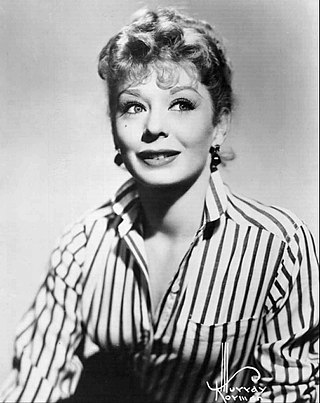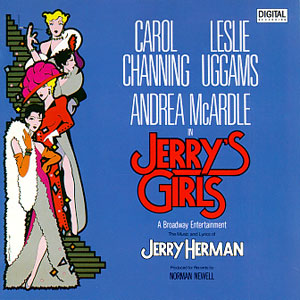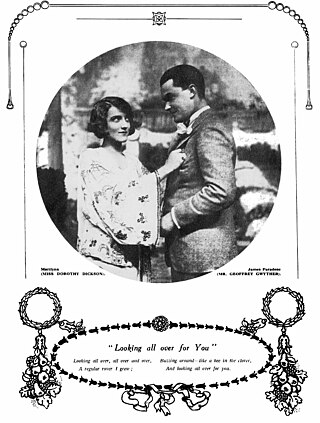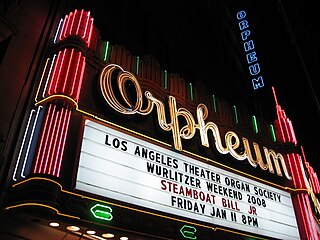
Gwyneth Evelyn "Gwen" Verdon was an American actress and dancer. She won four Tony Awards for her musical comedy performances, and she served as an uncredited choreographer's assistant and specialty dance coach for theater and film. Verdon was a critically acclaimed performer on Broadway in the 1950s, 1960s, and 1970s, having originated many roles in musicals, including Lola in Damn Yankees, the title character in Sweet Charity and Roxie Hart in Chicago. She is also strongly identified with her second husband, director-choreographer Bob Fosse, remembered as the dancer-collaborator-muse for whom he choreographed much of his work and as the guardian of his legacy after his death.

Nell Carter was an American singer and actress.
Faith Prince is an American actress and singer, best known for her work on Broadway in musical theatre. She won the Tony Award as Best Actress in Guys and Dolls in 1992, and received three other Tony nominations.

A chorus line is a large group of dancers who together perform synchronized routines, usually in musical theatre. Sometimes, singing is also performed. While synchronized dancing indicative of a chorus line was vogue during the first half of the 20th century, modern theatre uses the terms "ensemble" and "chorus" to indicate all supporting players in a stage production.

Mack & Mabel is a musical with a book by Michael Stewart and music and lyrics by Jerry Herman. The plot involves the tumultuous romantic relationship between Hollywood director Mack Sennett and Mabel Normand, who became one of his biggest stars. In a series of flashbacks, Sennett relates the glory days of Keystone Studios from 1911, when he discovered Normand and cast her in dozens of his early "two-reelers", through his creation of Sennett's Bathing Beauties and the Keystone Cops to Mabel's death from tuberculosis in 1930.
Ronald Ralph Schell is an American actor and stand-up comedian. He appeared on the May 28, 1959, episode of the TV quiz You Bet Your Life, hosted by Groucho Marx. Schell demonstrated a comic barrage of beatnik jive talk. As a stand-up comedian, he first developed his act at the hungry i nightclub in San Francisco, California. Schell is probably best known for his 1960s television role as Duke Slater in Gomer Pyle, U.S.M.C.

Jerry's Girls is a musical revue based on the songs of composer/lyricist Jerry Herman.

The culture of San Francisco is major and diverse in terms of arts, music, cuisine, festivals, museums, and architecture but also is influenced heavily by Mexican culture due to its large Hispanic population, and its history as part of Spanish America and Mexico. San Francisco's diversity of cultures along with its eccentricities are so great that they have greatly influenced the country and the world at large over the years. In 2012, Bloomberg Businessweek voted San Francisco as America's Best City.
The Texas Tommy is a vigorous social dance for couples that originated in San Francisco in the early twentieth century.
Saburo Shimono is a Japanese-American actor. He began his career on stage on Broadway and in regional theaters, starring in musicals like Mame, Lovely Ladies, Kind Gentlemen, and Pacific Overtures. He has appeared in dozens of movies and television shows in character roles, including Midway, Gung Ho, Presumed Innocent, Teenage Mutant Ninja Turtles III, The Shadow, Jackie Chan Adventures, Samurai Jack, and Southland Tales.

The Barbary Coast was a red-light district during the second half of the 19th and early 20th centuries in San Francisco that featured dance halls, concert saloons, bars, jazz clubs, variety shows, and brothels. Its nine block area was centered on a three block stretch of Pacific Street, now Pacific Avenue, between Montgomery and Stockton Streets. Pacific Street was the first street to cut through the hills of San Francisco, starting near Portsmouth Square and continuing east to the first shipping docks at Buena Vista Cove.
Jennifer Strome is an American producer and writer, focusing on script and show development.
The Jerry Garcia Acoustic Band (JGAB) was a band formed by Jerry Garcia of the Grateful Dead. They played a number of concerts in 1987 and 1988, and subsequently released two live albums.

Marcia Rodd is an American actress, singer, and director. After studying theatre at Northwestern University, she moved to New York City and began a successful career as a stage actress.

The Golden Gate Theatre is a performance venue located at 1 Taylor Street at the corner of Golden Gate Avenue in San Francisco, California. It opened in 1922 as a vaudeville house and later was a major movie theater. In the 1960s it boasted a Cinerama screen, but by the early 1970s it had declined and was showing blaxploitation films. It was restored and reopened as a performing arts venue in 1979.
Martin Aronstein was an American lighting designer whose Broadway career spanned thirty-six years.

The Cabaret Girl is a musical comedy in three acts with music by Jerome Kern and book and lyrics by George Grossmith, Jr. and P. G. Wodehouse. It was produced by Grossmith and J. A. E. Malone at the Winter Garden Theatre in London's West End in September 1922 and featured Dorothy Dickson, Grossmith, Geoffrey Gwyther, and Norman Griffin in the leading roles.

Richard Palmer Kaleioku Smart (1913–1992) was an American musical theatre actor and singer who became owner of the largest private ranch in Hawaii.

The Orpheum Circuit was a chain of vaudeville and movie theaters. It was founded in 1886, and operated through 1927 when it was merged into the Keith-Albee-Orpheum corporation, ultimately becoming part of the Radio-Keith-Orpheum (RKO) corporation.